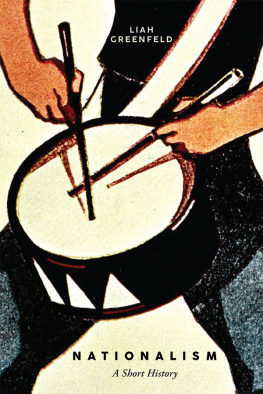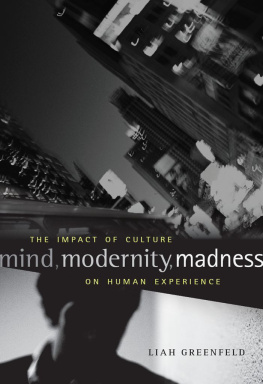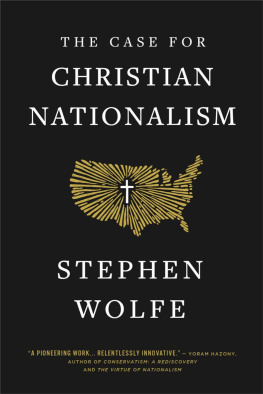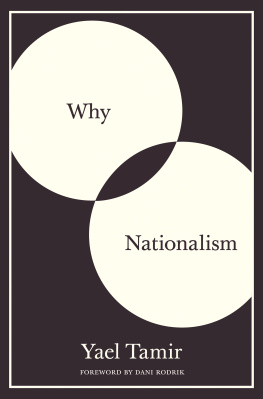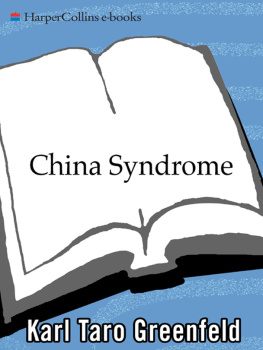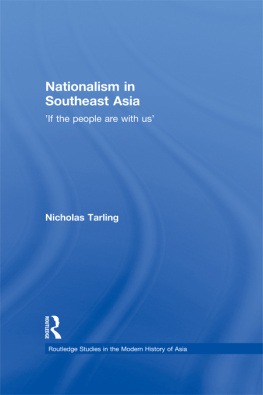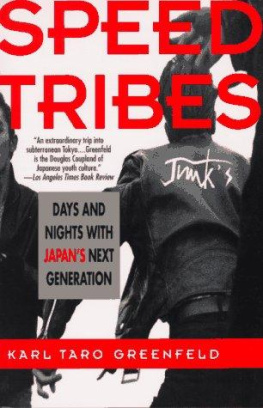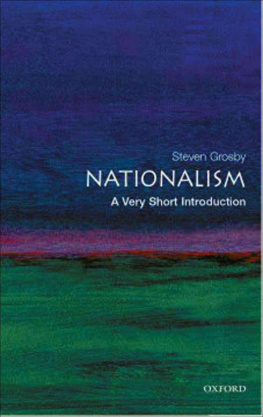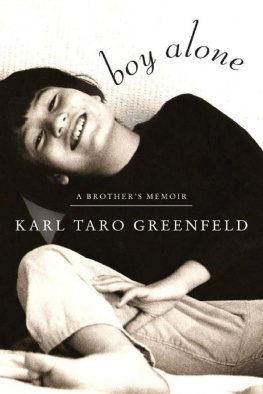Liah Greenfeld - Nationalism
Here you can read online Liah Greenfeld - Nationalism full text of the book (entire story) in english for free. Download pdf and epub, get meaning, cover and reviews about this ebook. year: 2019, publisher: Brookings Institution Press, genre: Religion. Description of the work, (preface) as well as reviews are available. Best literature library LitArk.com created for fans of good reading and offers a wide selection of genres:
Romance novel
Science fiction
Adventure
Detective
Science
History
Home and family
Prose
Art
Politics
Computer
Non-fiction
Religion
Business
Children
Humor
Choose a favorite category and find really read worthwhile books. Enjoy immersion in the world of imagination, feel the emotions of the characters or learn something new for yourself, make an fascinating discovery.
- Book:Nationalism
- Author:
- Publisher:Brookings Institution Press
- Genre:
- Year:2019
- Rating:3 / 5
- Favourites:Add to favourites
- Your mark:
- 60
- 1
- 2
- 3
- 4
- 5
Nationalism: summary, description and annotation
We offer to read an annotation, description, summary or preface (depends on what the author of the book "Nationalism" wrote himself). If you haven't found the necessary information about the book — write in the comments, we will try to find it.
Nationalism — read online for free the complete book (whole text) full work
Below is the text of the book, divided by pages. System saving the place of the last page read, allows you to conveniently read the book "Nationalism" online for free, without having to search again every time where you left off. Put a bookmark, and you can go to the page where you finished reading at any time.
Font size:
Interval:
Bookmark:
NATIONALISM
A Short History
LIAH GREENFELD
BROOKINGS INSTITUTION PRESS
Washington, D.C.
Copyright 2019
THE BROOKINGS INSTITUTION
1775 Massachusetts Avenue, N.W., Washington, D.C. 20036
www.brookings.edu
All rights reserved. No part of this publication may be reproduced or transmitted in any form or by any means without permission in writing from the Brookings Institution Press.
The Brookings Institution is a private nonprofit organization devoted to research, education, and publication on important issues of domestic and foreign policy. Its principal purpose is to bring the highest quality independent research and analysis to bear on current and emerging policy problems. Interpretations or conclusions in Brookings publications should be understood to be solely those of the authors.
Library of Congress Cataloging-in-Publication Data
Names: Greenfeld, Liah, author.
Title: Nationalism / Liah Greenfeld.
Description: Washington, D.C. : Brookings Institution Press, [2019] | Includes bibliographical references and index.
Identifiers: LCCN 2019001456 (print) | LCCN 2019006375 (ebook) | ISBN 9780815737025 (ebook) | ISBN 9780815737018 (pbk. : alk. paper) | ISBN 9780815737025 (ebk.)
Subjects: LCSH: NationalismHistory.
Classification: LCC JC311 (ebook) | LCC JC311 .G7148 2019 (print) | DDC 320.5409dc23
LC record available at https://lccn.loc.gov/2019001456
9 8 7 6 5 4 3 2 1
Typeset in Adobe Garamond Pro
Composition by Elliott Beard
CONTENTS
Sixteenth-century EnglandWars of the Roseswhy nationalismdignitydemocracyProtestant Reformationthe Biblecompetitiveness imported with the idea of the nationcapitalismscience
Eighteenth-century France ressentiment Enlightenmentrevolutionpolitical spectrum: left and right
The United StatesRussiathe three types
Types of democracythe rise of ideologythe many names of nationalismGerman influenceRomantic social philosophytotalitarianism and racismthe Jewish questionnationalism between left and right in the twentieth century
Civilizationcrossing civilizational boundariesJapan, China, and India
INTRODUCTION
BEFORE EQUALITY
In a relatively stable society that has not experienced a war or a violent regime transformation in more than a hundred years, such as the United States of America, it is difficult to imagine that the world could be different from the way it is today. It is difficult to imagine that it could be fundamentally different, even in societies that have lived through wars and violent regime transformations within living memory of some of its members. But history teaches us that the world of human experienceour realitycan be, not that long ago was, and in some contemporary societies still is fundamentally different from the one in which most of the readers of this book may be presumed to live. Fundamental difference, in this context, is the difference at the core of the existential experiencein the things for which people strive and which make them suffer, in the essence of their values and perceptions of good and evil.
It is sobering to contemplate that the great majority of societies in human history existed for relatively short periods, not more than a few dozens of generations (if we regard a generation as twenty-five years). Some of these short-lived societies disappeared without a trace, or with only archaeological evidence of their existence. Some were great powers in their daythink of the Athens city-state, or of the Assyrian, Babylonian, or Persian empiresthat left obvious traces, and were survived by cognate populations. But only three populations preserved their cultural integrity their identity and core valuesin the intervening 2,500 years: the Chinese, the Indians, and the Jews. Contemporary Athenians may be biological descendants of those who lived in the city in the fifth century BCE, but they are activated by completely different motives, espouse beliefs that have nothing in common with those of their ancestors, and experience life in ways that these ancestors would not possibly understand.
One does not have to go back millennia to see that societies and their fundamental values rise and fall, and often fall soon after rising. Think about modern history: the Ottoman Empire, which ruled over the Arab Middle East and parts of southern Europe between the fifteenth and early twentieth centuries, is no more. Only Turkey preserves its memory, but the values of Turkey and the existential experiences of its citizens are not those of Ottoman society. The equally great and powerful Austro-Hungarian Empire, which existed for barely a century and disintegrated at the same time as its Ottoman neighbor, is hardly remembered at all. And what about the Soviet Union? Could anyone have predicted that it would last only seventy years? It was the subject of a special academic discipline: a prominent university could no more do without Sovietology than without biology or geologylike the globe or life, the Soviet Union was considered eternal. Yet oh, how the mighty have fallen!
Such social short-sightedness is natural, and on the whole salubrious. It would be distressing to constantly keep in mind a memento mori for ones own society that frames ones life. It is the anchor for all of our aspirations for ourselves and our children, our everyday plans, our work and leisure activitiesand if it disintegrates, all these disintegrate with it. Yet this short-sightedness prevents us from realizing that our world is just one among many possible, and possibly existing, worlds. There is nothing natural in the values that define it; ultimately, these valueswhat we value, what we consider good and justare a historical accident, shaped by choices that our society made at some point in its formation.
The United States of America is a young society: there have been barely ten generations of Americans. But for a human individual, 242 years is a very long time. We believe our society must endure forever, and think nothing of endangering it. We consider the most trivial details of the American way of life, such as moving ones head up and down to signify yes and side to side to signify no, to be natural, simply human. We might be amused to learn that it is equally possible to nod our heads for no and shake them for yesas, for instance, is customary in Bulgaria. And when it comes to our core ideals of equality and respect owed to every human being, a mere suggestion that these ideals may be denied arouses our wrath. We firmly believe that the purpose of humanity is to realize these ideals, we measure other societies by how well their institutions accord with these ideals, and we constantly demand of our own institutions a more perfect accordance with them, never satisfied with the current state of affairs. But in 1776, the declaration that all men are created equal was revolutionary; it would have appeared absurd, preposterous to the vast majority of people then alive. Even today, the reason why three billion people in Southeast Asia do not find this declaration strange is only because it has become a cultural trope, thanks to a world hegemony of Western nations that has lasted for a quarter of a millennium. A cultural trope, however, is not a value or even a belief: it is simply a statement that has been repeated without question so often that it arouses no reaction whatsoever.
It does not require much effort to prove how little equality mattered, even in the West, where it is a core value today. Certainly, neither Plato nor Aristotlethe putative founders of Western political philosophy, who indeed articulated the values of Athens, the nominal birthplace of democracyconsidered equality an ideal. In general, they had a low opinion of it. For Plato, the ideal city was the aristocratic republic, governed by men who were naturally superior to those they ruled, and therefore based on insurmountable inequality. The closer to equality a polity moved, the closer it came to tyrannyindeed, only one step separated democracy and tyranny. Aristotle had a better opinion of democracy than Plato did. He placed it below aristocracy, which was an ideal less consistent with justice than monarchy, but nevertheless he considered it to be the least evil of the commonly observable political regimes, much preferable to tyranny and even oligarchy. But it clearly was not the greater equality of the Athenian regime that made him prefer it to these latter. Aristotle felt no need to discuss to any extent the fact that the demos , or the citizenry in Athens, was limited to native-born free males, or to examine the marked inequality of rights and opportunity between Athenian citizens and immigrants such as himself. Being allowed to move to Athens evidently was a privilege in itself, even if it came with economic and political restrictions. Immigrants and citizens belonged to different categories, and the inequality between these categories was perfectly just.
Next pageFont size:
Interval:
Bookmark:
Similar books «Nationalism»
Look at similar books to Nationalism. We have selected literature similar in name and meaning in the hope of providing readers with more options to find new, interesting, not yet read works.
Discussion, reviews of the book Nationalism and just readers' own opinions. Leave your comments, write what you think about the work, its meaning or the main characters. Specify what exactly you liked and what you didn't like, and why you think so.

